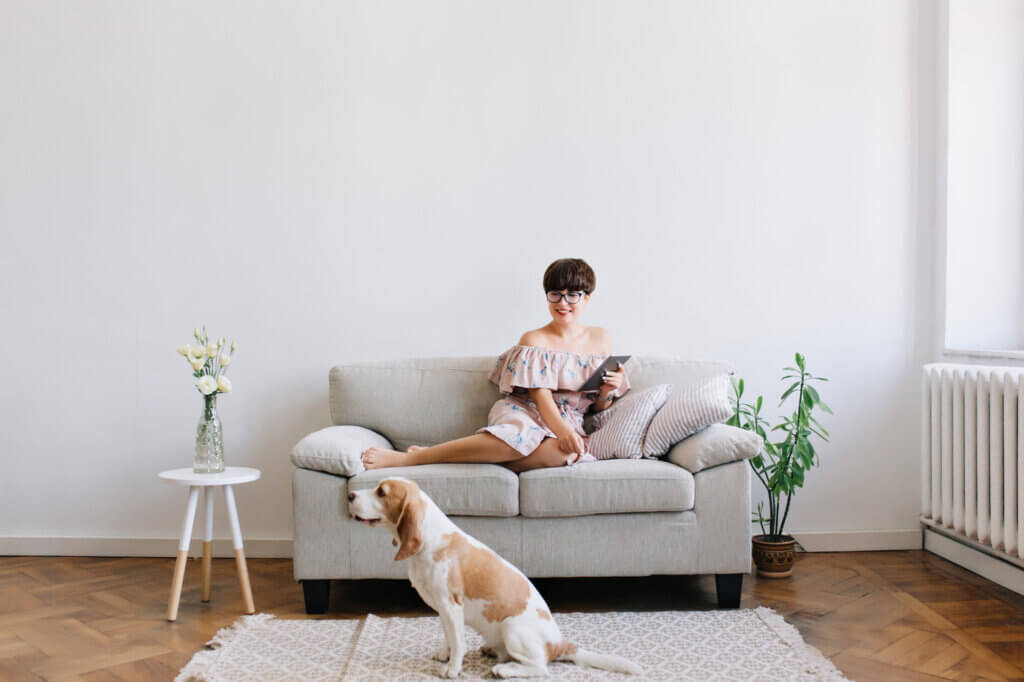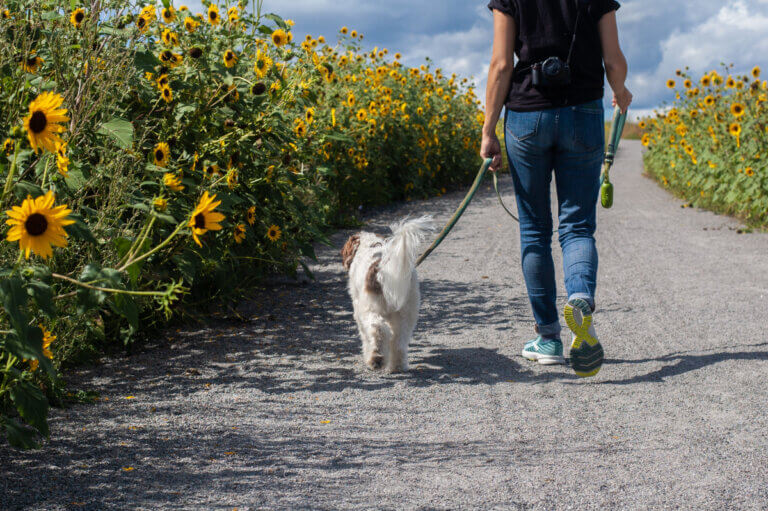When a client asks me how to keep their dog off the couch, My first question is “Why do you want to keep your dog off the couch?”
Should dogs be allowed on the couch?
It’s your house so you get to make the rules. The out-dated training advice to never let your dog onto an “elevated position of power” such as a couch is based on a misinterpretation of canine social behaviour. My advice is this: if you want to let your dog on the couch, then that is fine, as long as the dog asks permission to join people on the couch, gets off the couch when asked, and shows no problematic behaviours related to being on the couch (e.g. resource guarding).
Maybe you don’t want the dog on the couch because you don’t want it soiled or damaged, or you don’t want to be covered in dog hair every time you sit on the couch. A simple compromise could be to cover parts of the couch with a blanket that can be moved aside and easily laundered. Designating a section of the couch for the dog and training a dog to lay there can be a simple training task, especially for dogs that love being on the couch.
If my client still wants to keep the dog off the couch, my second question is “Why do you think your dog wants to go on the couch?”

Related Articles
What is causing or reinforcing the behaviour?
This question can lead to simple solutions such as getting a dog bed that is as comfortable as the couch, placing the dog’s bed closer to where the rest of the family gathers, or providing a dog-friendly piece of furniture that provides a good view out the window. Sometimes the question reveals that the dog has been going onto the couch to get attention from the owner, or that the owner’s previous attempts to stop the behaviour have turned the couch into a highly coveted forbidden object. In cases where dogs are chewing on the couch, the question may reveal that the behaviour is related to boredom, separation anxiety, or teething.
How to effectively change the behaviour?
An effective training plan will set up the dog to make good choices, and then provide consequences the dog will like to help ensure the good choices will be repeated in the future. Such a plan will likely include management to prevent the dog accessing the couch until the dog is able to make good choices, and training the dog to do an alternate behaviour such as choosing the dog bed instead of the couch. If the dog’s couch-related behaviours are caused by underlying issues such as anxiety or resource guarding, it is very important to get help from a reputable dog behaviour consultant who follows the LIMA principle, is educated in the science of canine behaviour and cognition, and is able to recognize the emotions underlying the unwanted behaviours.







